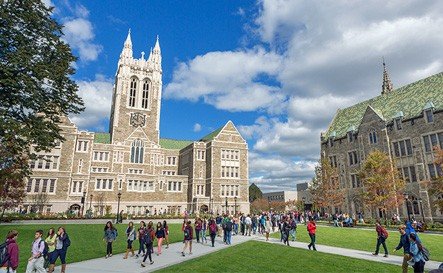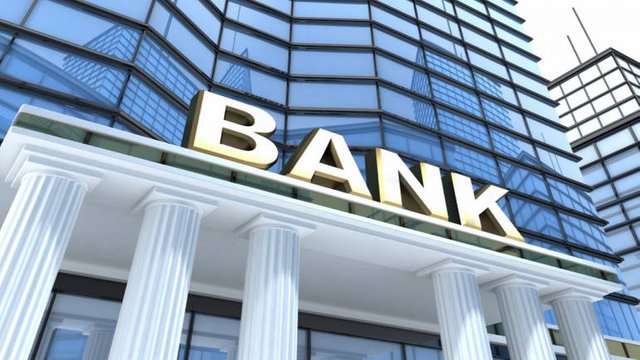What will bring on the next imminent US economic collapse?
Remember 2008? Banksters created an illusion that housing prices could keep going up and up because they artificially fueled demand by creating a new customer base of people who got mortgages that previously would never have qualified.

This was underwritten by Federal Govt policy under George Bush that sold the dream that "everyone should be able to own their own home". Pure fiction. There are clearly those that can never repay debts of that level, yet the banks would write mortgages to anyone with a pulse (in fact sometimes that was even optional).
They didn't care. They knew that it was all about commissions and that with the Federal Govt spurring them along, nothing could go wrong. Right?

When the reality was discovered that after the initial "first 2 years are affordable" period expired, and now the dominoes started to fall as more and more mortgage holders defaulted on their obligations because they simply couldn't pay them, it all came crashing down. Innocent victims everywhere and it was a horrible time.
Seems that we are doomed to repeat history.
This time it is about Student Loan Debt
In the USA, it used to be that going to college was a guarantee of entry into the middle class. This was almost a "caste system" like in countries such as India. If you didn't have that degree, you were going to spend the rest of your life battling against the tide, while others just seem to sail on through. Getting a job was hard, getting a good paying job was really hard. And getting a job that you could count on being there was nearly impossible. With the demise of the trade unions, it was almost a recipe for poverty - just don't go to college.

And college was expensive. Families had to save for it. Sometimes families would start to put money away for their kid's college fund as early as the day they were born. Hoping that by investing it in the markets, it would grow to the point where it could afford the $100K+ college education. God forbid you had a smart kid, and some ivy league college offered them entry as that would now be $250K for a 4 year degree. But the perception was that this would be easy to show a return on investment, because they would be making six figure income for the rest of their lives.
Then along came more government policy that created more chaos. You see, if a private lender was to loan you money, for let's say a car, and you default on the loan, they have some collateral security. And if the car wasn't worth what you owed, you could call in your "bankruptcy chip" and discharge the debt once every 10 years or so. Sure, you will look like a dead beat debtor and probably not qualify for loans for 10 years, but at least you could discharge it. Banks priced in the interest rates on those loans according to risk factors, and therefore you probably couldn't afford the Porsche that you always had on the poster on your bedroom wall as a kid because you had shitty credit. There was some incentive for people to pay their debts because of this.
But congress in the USA did one thing for student loan debt that doesn't apply in all other parts of the lending industry - you CANNOT discharge student loan debt by bankruptcy.

So what happens if you can't pay your student loan debt? You can "Defer" it. This means you elect not to pay for some time, until you get a job and you are back on your feet. But the problem is that the interest keeps on accruing while you do this. So you never are able to actually pay it off. Each month, you owe more interest. Sure, you don't have to pay it for a while, but when you do, the debt is larger than it was before. It isn't surprising that people have 20+ years of student loan debt ahead of them, limiting their ability to actually participate in the regular economy - buy a house, raise a family, etc.
Consequently we have a $1.5 trillion dollar debt load on student loans. That's a crap ton of money, people.
Universities & banks form a cartel
Imagine that you can sell education at massively marked up pricing, and you don't have to be responsible for quality because really all the customer is paying for is a piece of paper that unlocks the door to the middle class? And imagine that you want more and more customers? When small businesses want to sell large ticket priced items, often they partner with financing and lending institutions to be a proxy for providing store credit, leasing, or other financial products that drive more sales. Car sales are a perfect example of this - it isn't that the dealership will make a lot of money on the car sale, but they probably make more on the kick back on the financing that they will sell you on.
Universities are no different. They want more customers. Their buildings, curriculum, admin staff, etc. are a "sunk cost". That is they have to pay for them whether there is 1 or 100,000 students going to the college. So the more students they can pack into a lecture hall, the better. And are they ever held accountable for the investment? Not really. If they graduate hundreds of thousands of kids, that's measurable. But whether those kids are actually prepared for the "real world" is subjective and the success of that kid getting a well paying job is never measured because if that doesn't happen, who is to say it isn't the fault of the kid, the economy or some other factor. I mean education isn't really a contributor to the kid's success in their career. Only that they got the job interview because they were allowed through the door.

But who else benefits? It's the banking sector. I mean they get to sell interest bearing loans to students, that can't be discharged off the books due to bankruptcy. What a huge windfall! They charge enormous interest on credit card debt, car loans, pay day lending, etc. because they carry a massive risk on it. But there is no risk to a student loan - particularly if it is underwritten by the US Federal Govt and can't be discharged.
What is really criminal here, is that they are selling these loan packages to kids who have never been taught anything about debt or economics in real life. No high school teaches them about these things. It is the very same colleges that are supposed to teach them about economics and it is too late when they have already signed on the dotted line to accept the debt load from the very same colleges to get there to the lesson. What a mess.
Amping it up
So as a result of this perfect storm for the Universities and Banking cartel, they are in the sell, sell, sell mode. They want more students. Expand their campuses. Open new campuses. Sell more and more education. All underwritten by greedy banksters that are wanting to sell more debt. Debt that they can supply from their benefactors - the US Federal Reserve. With the extremely low interest rates, they can make a massive spread on a guaranteed profit level. As the interest rates gradually rise, so do the student loan payments. And since they don't care (actually encourage) that you defer payment on the loans, they are set to continue to create massive profits on the backs of unwitting participates - the college students.
By the time they realize that their life is compromised financially, they have learned probably the most important lesson of their entire college career. Don't take on debt unnecessarily.
Are college degrees necessary?
This is debatable. If you need a specific tertiary education because you have chosen your calling that might be a doctor, lawyer, accountant, engineer, architect, etc. and the qualification requirements force you to have a tertiary education for those fields, then clearly you have no choice. If you don't yet know what you want to do, and who could expect you to because you haven't been in the workforce yet, then it may not make sense.
The opportunity cost alone of delaying your entry to the workforce by 4+ years means you have to claw back the lack of earning over those years against future earning potential. And if the efficacy of the college education is being diluted while banks & colleges try and mass sell them, then it may be that they become somewhat meaningless.
It may be that for many, a more applied education (such as a trade school, apprenticeship, military, etc.) makes more sense and often can generate more income over time than the college educated student. It comes down to what society demands of its workforce. If we live in a world of artificial intelligence and robotics, then someone that isn't educated to compete with a robot for work may be at a disadvantage. However if you look at the industries that are being affected by automation, they are not just the factory workers that we think of. They are book keepers, lawyers, computer programmers, etc. These industries have been ravaged by global outsourcing to cheaper countries, and now automated software that will replace much of the work, reducing the need for human capital.
Prediction
What does my crystal ball tell me?

I think this unsustainable debt bubble will collapse. I think a change in administration or US Federal Govt policy may trigger it, but I predict that at some point the debt load will be so high than the US Federal Govt will issue a change in the bankruptcy protection laws that will allow the discharging of student loan debt.
They will have to. This will grow so large that it will compete with the total debt of the nation. And what will likely trigger it is the recognition of "for profit" universities stealing the futures of the kids. This is likely to be a political issue more akin to Democrats than Republicans, but if an socialist oriented Democrat is elected, this is going to be happen. The banks will be forced to "eat" the risk and it will kill their profits, triggering another collapse in the economy.
It is one MORE reason why governments should get out of the business of education and banking, and return this to a real free market where lenders have to compete on legitimate grounds and the value of a tertiary education is returned, where only those that can afford it will get one, and the differentiation will be substantial. At that point, the return on investment in the education will make it desirable and some sanity will be returned back to the education sector.
This might sound harsh, but not everyone DESERVES a tertiary education. If you are a super smart whiz kid, and the university wants to teach you, then a scholarship might be a good route. It will force the student to apply hard for it, and it might reduce or even remove the tuition portion of the costs. Or maybe it will force families to start to plan for their kid's education by using investment accounts that may have some tax advantage. Unfortunately they are few and far between other than state based taxation reductions, but it is a start. I mean if we are supposed to save for our retirement and get tax advantaged savings with 401K, IRAs, etc. shouldn't their be similar plans for educational savings?
And what if you just don' t have the money? Easy. Don't go to college. Get an apprenticeship and if you decide you want to be a doctor later, then save up your earnings and invest it that way.
Or here's an even better idea.... What about you use the world as a free market for tertiary education and shop around where you can afford college? Maybe you would find it more affordable to study in Latin America and do your final year or so of college in the USA, thereby reducing down the local debt load? Or in Europe, or the Caribbean. A friend of mine was a bank teller at a local bank, and wanted to be a doctor. He chose to move to the Dominican Republic and study there for 2 years, then returned back to the USA to complete his studies and then moved to a paid internship to finalize the education. Today he is a qualified and practicing physician. With no debt.
Timing
When will the collapse happen? There may be other factors that occur that trigger an economic collapse first, but I have a feeling that this one will be the big one. This is up there with the sub-prime mortgage scandal, and it is just not fair to sell a child an obligation that can't be discharged and will follow them for 20+ years into their lives. It is another form of debt enslavement and should be outlawed. Either you don't go to college and you learn an applied skillset that you can actually use early in life, or you go there because you really want to be a doctor, lawyer, etc. and NEED a degree. Everything else doesn't make sense for a college education, and I personally would prefer that we adopt a more European approach here, where the kids are expected to travel the world for 12-24 months after they finish high school and find their calling in life. It is healthy and defines the identity of the human psyche.
Until that happens, and until Americans start to lose the fear of travel, this problem continues and sucks the economic life out of people like water swirling down the drain.
Let's hope that your post get to the right eyes and that's exactly why It deserve my upvoute and many more. Thank you for the heads up and I will be never enough.
Out of curiosity, are you a student?
No but I've read about this a lot and I think that in these days where even in Steemit you can learn everything there is no need to get in debt to learn or to have a credential for a job. Now I have a kid and is my time to convince myself that it's not so important that he get a college degree and then explain it to him and even more important to make sure that he learn how to learn by himself.
Each country and culture has a different view of tertiary education. In Australia, for example, it is often no prioritized as high as trade labor and it also has relatively high costs of attendance. Much of their tertiary education system is funded by foreign students who pay high premiums to come to the country and get an education. But there was a time (probably still the case today) where being a license plumber would generate more income than a lot of "middle class" jobs out of college. The thing you have to do is factor in the 4 years of lost income during education + the 4 years of lost work experience (the student will come out of college with 4 years less work experience than someone who didn't attend). After you get that back, then any additional income made starts to pay down the cost of the college education. Once that is covered, then you start to earn revenue. The question is for how many years will you have left before you exceed the income of the trades person, and if you are carrying student loan debt for many years, it may be that you never actually do earn more. It seems no one actually runs the numbers anymore on these things, and yet they are the most important economics that any student should know.
Excellent post @beunconstrained I hadn't thought about that yet.
I think the student loan crisis story would need to go viral or something like that for it to get the attention of politicians.
And the fact that a U.S. President, even a Democrat would not want to be responsible for the next financial crisis might also prevent this from being addressed.
Presidential candidate Andrew Yang has mentioned debt forgiveness but I am not sure how he would implement it.
Btw, I live in the Philippines so I am not sure how much news coverage student loan debt is getting - Is the story already viral?
Obama did attempt to address this, but more along the lines of promoting community colleges as an alternative for those that couldn't afford college. He was almost trying to create a competition to the existing college structure, but despite the effort it didn't really fly. Kids don't see community college as much more than a glorified trade school and most of that is often best taught in apprenticeship rather than in a school lab environment. The thing is that until they remove the bankruptcy provisions from this debt load, it will continue to grow at a rate that is downright dangerous - not that it hasn't already hit that level. I mean $1.5 trillion in debt load? That is crazy. This has to change or it will bankrupt all of us.